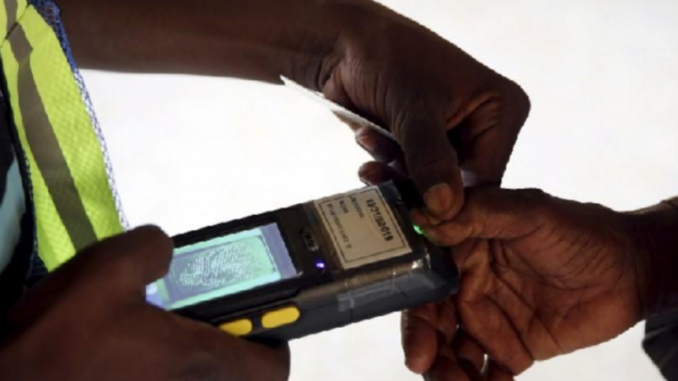
THE recently concluded area council elections held at the Federal Capital Territory demonstrated once again that Nigeria’s electoral machinery is still wobbly and needs serious fine-tuning. Many registered voters who had hoped to exercise their franchise, were disenchanted due to the below par performance of the Independent National Electoral Commission.
Ordinarily, INEC should have performed creditably well since the FCT council polls are mere local government elections. However, the outing proved that the umpire has been unable to address some recurring challenges bordering on logistics, and the deployment of technology.
Just like in the last governorship election in Anambra State in November 2021, there were several complaints by voters that the Bimodal Voter Accreditation System, which is used in accrediting voters – without which they would not be allowed to vote – flopped in several polling units. BVAS, which replaces the smart card reader, has failed to meet expectations.
A resident, Babatunji Olaifa, voiced his frustration at a polling unit in Wuse Zone 4, saying, “I could not be verified, either through the picture or my fingerprints. Note that I have voted at this same polling booth since the advent of our democratic process in 1999 without any issue and with the same voter’s card since these current ones were introduced.” Olaifa, like several other voters, was subsequently turned back. The Country Director of the NGO, Action Aid, Ene Obi, stated in her assessment, “We had almost 5,000 people in some polling units who were ready to vote but the BVAS was misbehaving.”
By INEC’s own admission, voters would not be authenticated by BVAS “if they refuse to smile” during the biometric evaluation. This is asinine and completely nonsensical. It undermines the campaign for the use of technology in elections, which some politicians have opposed. INEC should get it right soonest, as voting is a serious business.
It is disappointing that eight years after INEC adopted the use of technology for the purpose of voter accreditation, the commission has failed to perfect it. In the 2015 elections, the SCRs similarly malfunctioned in various parts of the country. The then President, Goodluck Jonathan, and his wife were unable to vote for several minutes because the SCR could not verify their fingerprints. This development occurred across the country, forcing INEC to extend the poll till the second day. This is certainly not how to undertake an election. These things are standard in other democracies.
Apart from the challenge of technology, INEC officials continue to show up late at polling units, leaving voters unattended for hours on end. In the Anambra State governorship poll, the excuse was that the National Union of Road Transport Workers, which had entered into an agreement with INEC to convey ad hoc officials to the polling units, failed to honour the agreement for fear of being attacked by the separatist group, Indigenous People of Biafra. In the FCT area council poll, the excuse was that the lingering petrol scarcity undermined preparations and delayed electoral officers. INEC seriously needs to sit up.
Experts say that the process of voting should come with minimal inconvenience such that it would not discourage voters. It is bad enough that Nigeria has consistently witnessed low voter turnout in recent elections; when avoidable and unnecessary inconveniences are added to the mix, the turnout declines further. Curiously, the voter turnout since the BVAS was introduced has not exceeded 10 percent.
INEC urgently needs to address the confusion caused by the creation of an additional 56,872 polling units nationwide. Although designed to ease the process of voting and decongest the initial 119,974 polling units, the commission failed to redistribute voters in an even manner. Polling observers stated that some FCT polling units had as high as 2,500 registered voters, while some within the same proximity had just four. This must be addressed immediately.
If INEC is unable to effectively organise an off-season election of just six councils, it calls into serious question how the commission would fare in the governorship elections in Ekiti and Osun, which have 16 and 30 LGAs respectively. Undoubtedly, the outcome of elections depends largely on the will of the voters, but the credibility of any poll depends largely on the preparation of the electoral umpire.
In some elections, the stakes are so high that any glitch could alter the outcome, like in the Osun State governorship election in 2018, where the difference between the winner and the runner-up was just 482 votes. Also, in the 2019 governorship election in Sokoto State, the difference between the winner and the runner-up was just 342 votes. A malfunctioning BVAS machine in a polling unit can literally alter the destiny of a people. Thus, INEC must wake up from its slumber.
With the 2023 election season fast approaching, the commission must return to the drawing board immediately. Election technology is not rocket science. It has been successfully deployed across the world. In 2014, Namibia became the first African country to adopt e-voting, Nigeria and some others have opted to follow suit. While fine-tuning the Electoral Act is noble, thorough preparation for any election is not reliant on any law, but on those entrusted with duty to organise credible polls.
Civil society organisations should intensify advocacy ahead of the election season while government agencies like the National Orientation Agency, as well as information service departments across all LG secretariats in the country should be alive to their responsibilities by providing proper voter education.
The political parties cannot shift their responsibilities to the CSOs. Mobilising voters is integral to political parties’ activities elsewhere. The 2020 Presidential election in the United States witnessed a large turnout in some states mainly due to the civic engagements of political parties, some of whom engaged in a door-to-door campaign and telephone calls to encourage turnout. All hands must be on deck in Nigeria to ensure that the 2023 elections are a success.
END

Be the first to comment